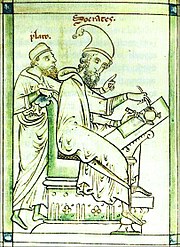Colon cancer signs and symptoms are not apparent at its early stages.
But routine examinations can detect unknown cancerous cells and, if detected early enough, can save lives. Still, men and women who have surpassed their early years are more likely to die from colon cancer. Ninety percent of colon cancer deaths occur in men and women who are over the age of 50, and most cancerous cells start of as adenomas cells.
Adenomas cells, commonly known as polyps, grow slowly in the inner walls of the colon or rectum and is the direct result of rapidly growing cells that creates mass tissue and, eventually, takes on the form of a benign or malignant tumor. Adenomas are noncancerous but these cells have the potential to become cancerous or malignant.
And for the 150,000 colon cancer cases that spread across the United States each year and the 52,000 annual deaths that arise symptoms of colon cancer from this disease, the American Cancer Society says the cancer is easily traceable in exams and curable if tests are taken before colon cancer signs and symptoms show up.
Since colon cancer signs and symptoms are not always present, so a colonoscopy or an enema are the most common treatments. Unseen signs and symptoms are never a clear indication that cancer doesn’t exist, but if you were experiencing signs you may encounter unhealthy weight loss, bleeding in stool, pain during bowel movements, changes in bowel habits, stomach pain or fatigue. And although they sometimes blur in its meaning, a sign is objective evidence that can be traced such as bleeding, vomiting and weight loss, while symptoms are subjective in nature and immeasurable. Some symptoms can include fatigue and abdominal pain.
So why are so many men and women dying from a disease that is curable?
Denial, embarrassment and misinformation are the main reasons colon cancer is the third largest cause of cancer deaths for men and the fourth in women. No one talks about what hides in the inner walls of their intestines. It’s no conversation starter. And the pure mention of “cancer” can silence a room of roaming minds as society has been led to believe that cancer is a death sentence.
It’s what we do no talk about that is killing us.
Talk to a physician. Schedule an exam. There are several methods for removing cancerous cells within the colon or rectum.
Colonoscopy
Recommended to be done every 10 years after the age of 50, colonoscopy is a procedure that removes leftover stool that can block up the colon and bowel movements. This test detects and removes polyps in the colon.
Advantages: Test allows doctor to view the entire colon and remove polyps or abnormal tissue. The colon does not have to be cleanses before initial screening.
Disadvantages: Though sensitive, the test does not detect small polyps. colon cancer symptoms in women Test can also lead to tearing of the inner colon walls and bleeding. Sedation is also needed for this procedure.
Barium Enema
Inserting barium through the rectum, into the colon for x-ray screening of the large intestine is a procedure that should be taken every five years. The barium is a liquid that projects images of the colon and rectum using x-rays. The down side is that this test has the tendency to miss polyps that are greater that a centimeter long.
Advantages: This test also allows physicians to view the entire colon. Sedation is not needed for this test and, unlike the colonoscopy, there are minimal complications.
Disadvantages: Test can lead to false-positive results and additional testing becomes necessary. The colon must be cleansed before screening.
Fecal Blood Test
A Fecal blood test is used to detect blood in the stool. The sample can be collected at home and brought to a lab.
Advantages: This test costs less than most of the other screening test. Samples can be collected at home and the colon does not have to be cleansed before the screening.
Disadvantages: The test does not detect most polys in the colon. Dietary restrictions may be suggested days before screening.
Colon cancer signs and symptoms are not found until years after cells symptoms of colon cancer in women begin growing abnormally in the body. This unexpected symptoms claim the lives of 52,000 each year so various test have been implemented over the years to reduce deaths and birth hope for carriers of colon cancer
Description: It’s hard to imagine 52,000 people dying because of failed hospital visits. How valuable is your life? Is it worth saving? Ninety percent of colon cancer victims didn’t think so…


